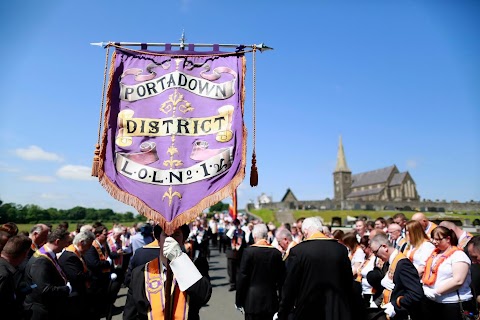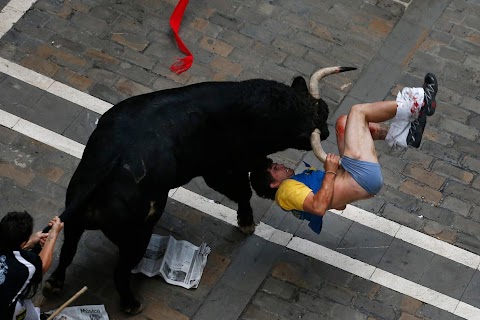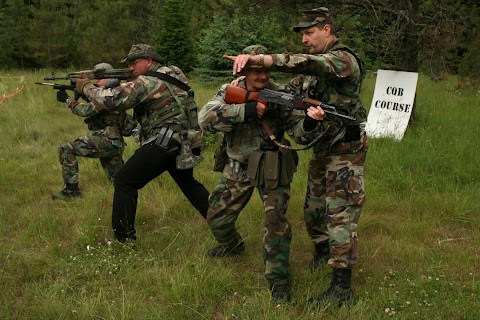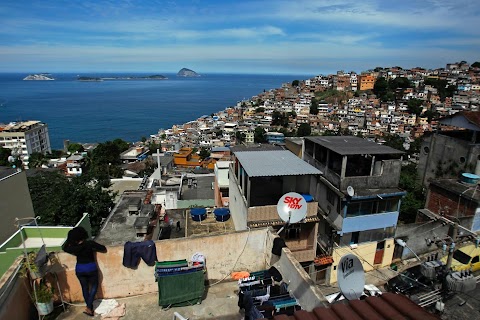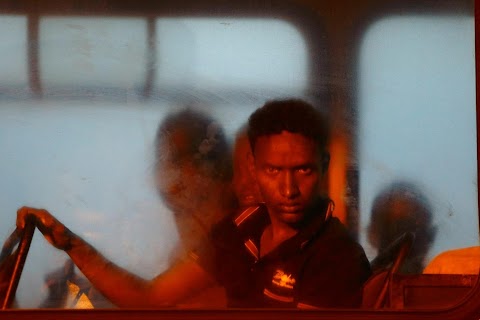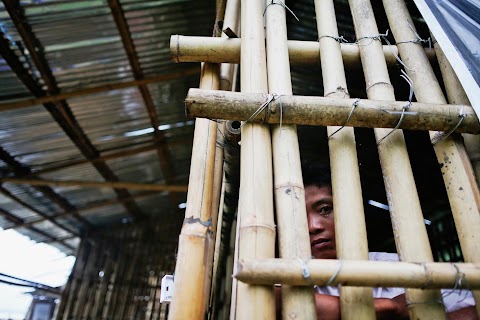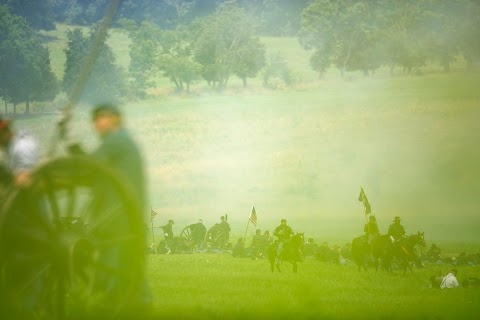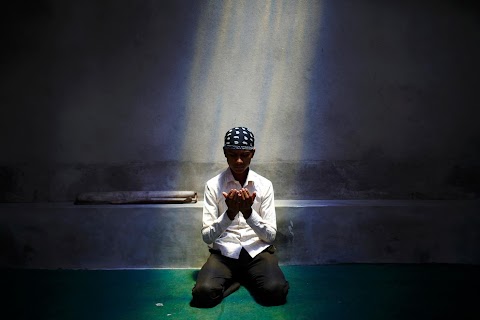
The West Bank - Israel commute
 Ammar Awad
Ammar Awad
There are two ways that Palestinian labourers can travel to work in Israel. Those who have permits can cross through a military checkpoint. Those who have none, like the workers in this image, have to find their own way to get past the barrier that runs through the West Bank. Both ways are time consuming, and the penalties for being caught entering illegally can be harsh. But the far higher pay that can be earned in Israel compared to the West Bank is an incentive for many to make the crossing.

Tayser Sherif Abu Khader is a 57-year-old Palestinian labourer, who has a permit to work in Israel. To get to his job as a construction worker, he has to queue at a checkpoint, never knowing how long the wait will be. If everything goes smoothly, he can earn four times the average salary in the West Bank. But if there is a problem and he cannot get to the construction site, he misses a day’s pay.

Palestinian labourers ride a pick-up truck as they make their way to cross from the West Bank into Israel illegally. They will earn less money than workers with permits and, if caught, could risk a fine or imprisonment, but they are still willing to make the crossing.
"The soldiers fired tear gas and rubber bullets at our truck, but the patrol did not give chase and we sped off to another spot."
There are two ways for Palestinian workers to cross into Israel every day. Those with work permits can pass through a military checkpoint. Those without a permit have to find a way through the controversial Israeli barrier, and sneak across the border. Both ways are time consuming. Neither is pleasant.
“I have no other choice,” said Tayser Sherif Abu Khader, a 57-year-old Palestinian from Qalqiliya who for two decades has been making the commute. “If I don't work in Israel, I will die from hunger."
I met Abu Khader in line with hundreds of other Palestinians who were waiting to cross through the Eyal checkpoint in the northern West Bank. He told me that about 7,000 Palestinians pass daily through the same point.
He had gotten there before dawn to make sure he would be at the front of the line and make it to his job on time. You can never tell how long the wait will be, he said. There are fingerprint scans, x-ray machines for their bags, and sometimes workers are delayed for additional questioning. But at the end of the day the hassle is worth it; the work opportunities are better in Israel than in the West Bank, where the economy is struggling.
Abu Khader works in construction in an area of Tel Aviv and was one of the few willing to talk to me. He is considered one of the veterans of the group and is in charge of a small group of volunteers who every morning make sure people stay in line. It is common for workers to try to cut the queue, and that could quickly cause a scuffle.
When things go well, Abu Khader returns home at night with 300 shekels. That’s at least four times to the average salary in the West Bank, he said. But if there are delays, or if for some reason he misses his ride to the construction site, he loses a day’s pay.
"I'm already thinking about how we will suffer at the checkpoint tomorrow," Abu Khader said after passing through after nearly two hours. Once in Israel, some of the workers lay down outside to catch up on sleep before their rides came.
Abu Kader recalled it wasn’t always such an unpleasant experience. The situation became difficult during the intifada, or Palestinian uprising, about 10 years ago, when Palestinian suicide bombers coming from the West Bank were carrying out deadly attacks in Israeli cities. The Israeli army went on an offensive against militant groups in the occupied territory and Israel built a separation barrier.
“Before the intifada and the separation wall, we could easily go and work in Israel and make a good living," Abu Khader said.
The barrier that snakes through the West Bank is made up of mostly fences and some cement walls. It is the primary hurdle for the more than 30,000 thousand Palestinian labourers, who work illegally in Israel, and crossing it comes with different risks.
I went to the central bus station in Hebron, the biggest city in the West Bank, and found a smuggling network that helps the workers cross over. As expected, they were hostile to a journalist and, in some cases, aggressive and asked me to leave.
One person, however, agreed to let me ride in his pick-up truck. I piled in with seven workers in the back and four more up front. Forty minutes after leaving the central station, we arrived at a hilly, desert area regularly used for such crossings. The passengers in the trucks grew visibly anxious.
Only one of them spoke to me. He gave me a fake name, Muhammed, and said he was 29 years old. He came from a village near Hebron and had worked illegally in construction in the area of Tel Aviv for the past five years.
“From the moment we leave the bus station until I arrive at my job, I am scared,” he told me. He was scared of being turned back, of being arrested, and even of being shot. Workers without permits, he said, make 100 shekels less each day than legal workers.
We drove along the fence to a section that had been cut open earlier by smugglers, but were met by an Israeli patrol. The soldiers fired tear gas and rubber bullets at our truck, but the patrol did not give chase and we sped off to another spot.
Our driver was coordinating with a second truck on the Israeli side to arrive at the crossing point together. We stopped about 30 meters from a second large gap in the metal wire fence. The workers jumped from the vehicle and sprinted for the border. I followed to the fence, but did not cross through with them. On the other side, the group ran a few meters to a pick-up that was waiting.
At that moment another Israeli army patrol pulled up and grabbed three of the bunch – one woman and two men – who did not run fast enough. Those three were taken into the army jeep, and depending on whether they had been caught before, were either sent home or arrested.
The rest drove off in the direction of the city Beersheba.
Slideshow

Fifty-seven-year-old Palestinian Tayser Sherif Abu Khader sets out from the West Bank town of Qalqilya to cross into Israel through a checkpoint.

Other Palestinian labourers with permits to work in Israel wait to cross over.

Palestinians wait to pass into Jerusalem at an Israeli checkpoint in the West Bank town of Bethlehem.

A man tries to get ahead of the long queue by climbing on the roof of a walkway.

A Palestinian coffee vendor waits for customers at a checkpoint.

Palestinians wait in line to cross into Jerusalem.

Palestinian labourers who crossed through Eyal checkpoint sleep on the ground as they wait for transport to take them to work in Israel.

Palestinians stand in line at an Israeli checkpoint.

A Palestinian man queues up.

Tayser Sherif Abu Khader lifts rubble at a construction site in Israel.

A Palestinian labourer with a permit to work in Israel fixes his bicycle after passing into the country at Eyal checkpoint.

Palestinian workers from the West Bank wait before illegally crossing Israel's controversial barrier in the southern West Bank.

Palestinians ride a pick-up truck as they make their way to cross the barrier without documentation, while an Israeli army vehicle drives past on the Israeli side of the fence.

Palestinians workers wait for a car to pick them up after they snuck through the barrier.

Palestinian labourers dash to cross the fence near the southern Israeli city of Beersheba.

Palestinian workers pay the driver who transported them to the barrier.

Israeli soldiers detain Palestinian labourers from the West Bank after they crossed the fence illegally.

A Palestinian labourer from the West Bank (left), who does not have a permit to work in Israel, digs at a construction site near Tel Aviv.

He washes dishes after eating a meal at the site.

Palestinian labourers from a town in the West Bank, without permits to work in Israel, share lunch.

An undocumented Palestinian labourer arranges the mattress where he sleeps at the construction site near Tel Aviv.




